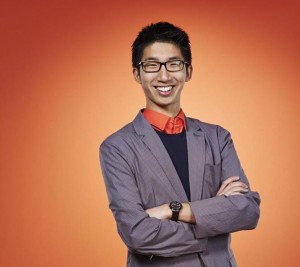Ehrsam is a 25 year old Duke graduate who worked as an asset manager and investor for Goldman Sachs before he founded his company. His company is named Coinbase, it is essentially a virtual wallet for Bitcoin. It functions the same way as Pay Pal but uses a different currency. Bitcoin for those of you who do not know, is a new form of virtual currency. It is used globally and about $1.5 Billion worth of Bitcoins are in circulation. The major problem with Bitcoin is that it is very volatile, when the new currency was introduced, it was valued at $1200, now it is down to just over $330. Ehrsam is working to help provide more security to Coinbase users by allowing the user to instantly sell the Bitcoins when they are received to avoid deflation and the varying prices. Coinbase, makes it easier for companies to make large payments more easily as well as make transactions with foreign companies and dealing with exchange rates. Coinbase is available in 19 different countries as of now and is looking to expand. Ehrsam is attempting to make Bitcoin more mainstream. He has used the same model as Pay Pal but has put his own spin on it, Coinbase
allows the user to save their Bitcoins using the vault portion of the app. The vault is set up in a way that the currency can be stored safely, as well as allowing you and your business partner, or whoever you share the account with to cosign withdrawals digitally to avoid users to make unauthorized withdrawals. There are about 37,000 business that trust and accept Bitcoin, but the problem is that there are not enough users of this new currency. I’m interested to see where this business takes Ehrsam. Coinbase has almost 2 million users so far and is the “World’s most popular Bitcoin service.” Pay Pal is very successful and Elon Musk has moved on to bigger and better things, I’m wondering if Ehrsam will do the same, and his company will keep expanding, or if Coinbase will fail because of Bitcoin’s unpopularity and constantly changing exchange value.

 We all have that pothole on the way to work, unattractive vacant lot across the street, or overgrown playground that we wish would magically be taken care of upon waking up the next day. However, most things in life are not magically taken care of, and most of us don’t make the effort to take care of them ourselves. In the aforementioned cases the policy is usually to report hazards or unsightliness to the correct local government department and hope that it is taken care of within the next year. Unfortunately, the steps for civic responsibility are often difficult or unclear and weeds end up remaining for much longer than necessary.
We all have that pothole on the way to work, unattractive vacant lot across the street, or overgrown playground that we wish would magically be taken care of upon waking up the next day. However, most things in life are not magically taken care of, and most of us don’t make the effort to take care of them ourselves. In the aforementioned cases the policy is usually to report hazards or unsightliness to the correct local government department and hope that it is taken care of within the next year. Unfortunately, the steps for civic responsibility are often difficult or unclear and weeds end up remaining for much longer than necessary.
 Julia Hu is doing something dozens of others are doing. But she is doing it right and she is doing it better. Hu created a wristband called LarkLife that tracks sleep patterns, diet, and exercise. Millions of people attempt to log their food intake and fitness for the day through phone apps and website, but have trouble keeping up. This is not the only issue – Hu and her 21 employees at Lark Technology believe that people are not challenged to change their life simply with raw data. “When you look at everyone in the world, about 3 to 4 percent are motivated by data. These are Olympic athletes, highly goal-oriented people, and tinkerers,” Hu explains. “The rest of the population is not at all motivated by numbers–or is actually negatively motivated by seeing numbers.”
Julia Hu is doing something dozens of others are doing. But she is doing it right and she is doing it better. Hu created a wristband called LarkLife that tracks sleep patterns, diet, and exercise. Millions of people attempt to log their food intake and fitness for the day through phone apps and website, but have trouble keeping up. This is not the only issue – Hu and her 21 employees at Lark Technology believe that people are not challenged to change their life simply with raw data. “When you look at everyone in the world, about 3 to 4 percent are motivated by data. These are Olympic athletes, highly goal-oriented people, and tinkerers,” Hu explains. “The rest of the population is not at all motivated by numbers–or is actually negatively motivated by seeing numbers.”